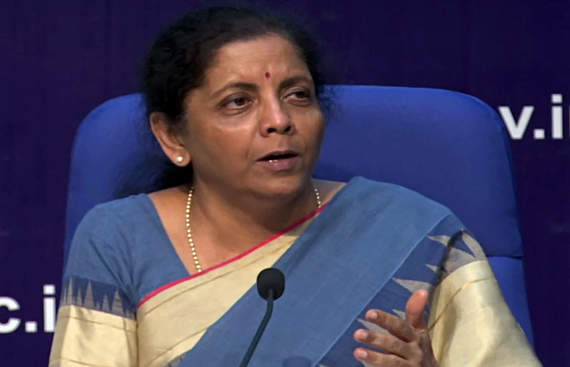Government Makes Ambiguous Decision to Withdraw Small Savings Scheme Order: Here's What it Means for the Middle-class

Late evening on Wednesday, the government had announced a significant cut on interest rates pertaining to small saving schemes for the three months of April, May and June. The order included interest cut on senior citizen saving schemes, National saving certificates were also cut by 90 basis point to 6.5 percent and 5.9 percent. And, when it comes to Public Provident Funds (PFFs) – one of the most preferred tax saving and investment option among the Indians, interest rates were cut by 70 basis points to 6.4 percent.
However, in a dramatic turn of decision-making, hours after announcing the substantial cuts on interest rates, the government backed-out from its own decision. This was done on Thursday morning via a Tweet sent out by the Finance Minister Nirmala Sitharaman. The Finance Minister reversed the decision and tweeted the following – “Interest rates of small savings schemes of GoI shall continue to be at the rates which existed in the last quarter of 2020-2021, i.e., rates that prevailed as of March 2021. Orders issued by oversight shall be withdrawn,”
Had the order gone through successfully, this would have been India’s lowest interest rate on Provident Funds since the 1974! Lower interest rates help not only individuals but also corporate borrowers as it frees up cash to be spent on economic activities rather than simply paying off loans. With lower interest rates consumers borrow and spend more, and thus, helps in the overall development of the economy. A fact that Corporate leaders, Economists, Analysts and Fund Managers had been pointing out to the government for quite some time now.
In February 2021, Bank deposit rates have seen a fall of 113 basis points to 5.39% since the beginning of 2020. The weighted-average lending rate of banks have also gone down by 85 basis points to 9.29% during the same period. The overall lending to corporates declined by 0.24%. And, when it comes to retail lending, the growth was limited to the single digits at 9.55%.
In addition to the borrowers, there are savers on the other side of the coin. The interest rates of 5.03% on offer touches inflation rates, a small cut in saving scheme interest rates would have hurt them even further. As a matter of fact, the rate of core inflation i.e., inflation that excludes food and fuel items stood at 6% in January 2021. A large chunk of the population which includes Senior Citizens, are dependent on their saving interest income to meet their expenditures. Further cut on interest rates, without any sight of the fall of inflation anytime soon in the near future would have led to a detrimental impact on consumption, and in-turn would have hurt the economy even further.
Most of the Indian households rely heavily on Fixed Deposits, small saving schemes, and other provident and pension fund income. In the year 2019-20, 84.24% of the Indian households’ financial savings were made in these financial instruments alone. A sudden fall in interest rates negatively impacts the general middle-class populace as they are forced to cut down on consumption even more. Hence, in light of the popular backlash on Social Media and the fact that many of the states are in the middle of general elections, and since, most of the Indian voters belong to the bracket of the middle-class, the Nirmala Sitharaman led union had to take back the order as it risked turning away voters in support of the ruling Bhartiya Janata Party.
Former Finance Minister P. Chidambaram on Thursday commented that there was nothing “inadvertent” about announcing a cut in interest rates on small saving instruments while Congress general secretary Priyanka Gandhi called the decision to put it on hold as being an “election- driven” ploy.
While Former Congress chief Rahul Gandhi lashed out on the Modi government by Tweeting "looting" citizens on petrol and diesel, would "start looting the middle class by reducing interest rates on small savings once the elections were over".
A cut in interest rates on small savings would have forced many investors into the stock market, increasing the overall volatility of the Indian economy in the process. March 2020 and March 2021, Banks have raised deposits worth ?13.55 trillion. During the same timeframe, Banks have given out loans’ worth just ?4.27 trillion, which is less than a third of the total deposits. In such a scenario where Banks are unable to lend out money, the interest rates naturally come down. On top of that, the RBI recently printed and pumped out huge some of money into the financial system in order to help the government borrow at lower rates, driving down the rate of interest even further.
Amidst all of these backlashes and hasty decisions, it is the Indian middle-class which seems to be the biggest sufferers.
